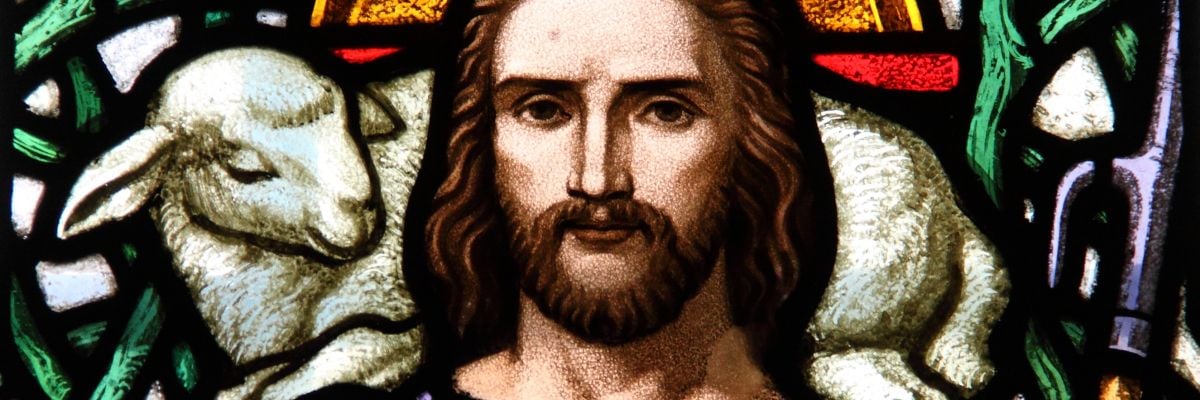
1. Where does the Bible say that the Mass is a sacrifice?
Of all of the Catholic doctrines that are denigrated by Fundamentalists as unbiblical, the sacrifice of the Mass has perhaps the most scriptural evidence that Fundamentalists and Catholics are unaware of.
During the Last Supper, the Lord said to his disciples, “Do this in memory of me.” In Greek, this statement reads, “Touto poieite eis tan eman anamnesin.” There are two.aspects of this phrase that deserve consideration. For one, the phrase touto poieite can be translated as do this or as offer this. In the Old Testament, God commands the Israelites “you shall offer (poieseis) upon the altar two lambs” (Ex. 29:38). This use of poiein is translated as offer this or sacrifice this over seventy times in the Old Testament. So the same word that is used for the sacrifice under the Old Covenant is used for the sacrifice of the Mass in the New.
The second key.aspect of this phrase is Our Lord’s use of the word anamnesin. If you were to ask a Protestant to look in a Greek Translation of his Bible, every time this word (anamnesis) appears it is within a sacrificial context (see, for example, Numbers 10:10). It also can be translated as memorial offering or memorial sacrifice. While these nuances are lost in the English translation, Jewish ears would have understood the sacrificial meaning of Christ’s words.
Another New Testament passage that testifies to the sacrificial nature of the Mass is 1 Corinthians 10:14–21. Here Paul argues that participation in the Lord’s table means refusing to participate in the sacrifices of demons. Paul contrasts two groups: The first are those who participate in one altar (the table of demons), eating the sacrifice and drinking from the cup of demons. The second are those who partake of the table of the Lord (which, according to Malachi 1:7 is synonymous with an altar of sacrifice) and drink from the cup of the Lord. Paul’s argument is based upon the parallelism between the demonic sacrifice and the Christian sacrifice. Hebrews 13:10 follows this thought, saying that we have an altar from which those who serve the tent (Jewish priests serving in the temple) have no right to eat.
2. If the Mass is a sacrifice, then doesn’t that imply that Christ needs to die again?
It’s a common mistake to equate sacrifice with death. To understand the sacrifice of the Mass, it is essential that one understand the biblical picture of a sacrifice: It is always a gift; it is not always a killing. This is why Scripture can speak of a sacrifice of praise (Hos. 4:12) and the sacrifice of thanksgiving (Ps. 50:14).
Besides offering lambs, the Israelites also made grain offerings, drink offerings, et cetera. One sacrifice was called the wave offering, and this was an unbloody sacrifice where the Jews would wave a gift before God to symbolically give it to him. In Numbers 8:9–15, the whole Hebrew tribe of Levi was presented to God as a wave offering. In a similar way, the Mass is an offering—a sacrifice—where Christ is presented before the Father.
3. Even if you don’t believe Christ dies during the Mass, the Bible still says that he was offered once for all (Heb 9:24–28). Doesn’t re-sacrificing him at Mass mean Calvary wasn’t enough?
Christ’s bloody sacrifice on Calvary took place once, and it will never be repeated. To repeat his sacrifice would be to imply that the original offering was defective or insufficient, like the animal sacrifices of the Old Testament that could never take away sins. Jesus’ offering was perfect, efficacious, and eternal.
Protestants have no qualms accepting the perfect and efficacious nature of Christ’s sacrifice, but invite them to consider its eternal.aspect. Jesus is eternally a priest, and a priest’s very nature is to offer sacrifice. In the case of Christ, the eternal sacrifice that he offers is himself. This is why he appears in the book of Revelation as a lamb, standing as though he had been slain (Rev. 5:6). He appears in heaven in the state of a victim not because he still needs to suffer but because for all eternity he re-presents himself to God appealing to the work of the cross, interceding for us (Rom 8:34), and bringing the graces of Calvary to us.
The Mass is a participation in this one heavenly offering. The risen Christ becomes present on the altar and offers himself to God as a living sacrifice. Like the Mass, Christ words at the Last Supper are words of sacrifice, “This is my body . . . this is my blood . . . given up for you.” So, the Mass is not repeating the murder of Jesus, but is taking part in what never ends: the offering of Christ to the Father for our sake (Heb 7:25, 9:24). After all, if Calvary didn’t get the job done, then the Mass won’t help. It is precisely because the death of Christ was sufficient that the Mass is celebrated. It does not add to or take away from the work of Christ—it is the work of Christ.
4. When did Christians begin to say that the Lord’s supper was a sacrifice?
Before looking at the ancient beliefs of Christians, consider the modern belief. This may come as a shock to Evangelicals, but seventy-five percent of Christians believe the Mass to be a sacrifice. When you add up the Catholics, Orthodox, Abysinnians, Coptics, Assyrians, Armenians, et cetera, it is evident that Protestants are in the minority with their interpretation. Still, it’s fallacious to argue that because a majority of people believes something it must be true, so let’s examine the faith of the first Christians.
The Didache refers to the Eucharist as a thusia, the Greek term for sacrifice: “Assemble on the Lord’s day, and break bread and offer the Eucharist; but first make confession of your faults, so that your sacrifice may be a pure one. Anyone who has a difference with his fellow is not to take part with you until they have been reconciled, so as to avoid any profanation of your sacrifice [Matt. 5:23–24]. For this is the offering of which the Lord has said, ‘Everywhere and always bring me a sacrifice that is undefiled, for I am a great king, says the Lord, and my name is the wonder of nations’ [Mal. 1:11, 14]” (Didache 14 [A.D. 70]).
Note the reference to the first chapter of Malachi. This was a prophecy that spoke of worshipers offering incense and a sacrifice on the Lord’s table everywhere to replace those in Jerusalem. Church Fathers emphasized this point, knowing that the Eucharist was the fulfillment of it. Even the Protestant early-Church historian J. N. D. Kelly writes that in the early Church “the Eucharist was regarded as the distinctively Christian sacrifice. . . . Malachi’s prediction (1:10, 11) that the Lord would reject Jewish sacrifices and instead would have ‘a pure offering’ made to him by the Gentiles in every place was seized upon by Christians as a prophecy of the Eucharist” (source).
A decade after the Didache was written, Clement of Rome wrote, “Our sin will not be small if we eject from the episcopate those who blamelessly and holily have offered its sacrifices. Blessed are those presbyters who have already finished their course and who have obtained a fruitful and perfect release” (Letter to the Corinthians 44:4–5 [A.D. 80]).
At the turn of the second century, a bishop and disciple of John the Evangelist wrote, “Make certain, therefore, that you all observe one common Eucharist; for there is but one body of our Lord Jesus Christ, and but one cup of union with his blood, and one single altar of sacrifice—even as there is also but one bishop, with his clergy and my own fellow servitors, the deacons. This will ensure that all your doings are in full accord with the will of God” (Letter to the Philadelphians 4 [A.D. 110]).
Justin Martyr added these thoughts with regard to the prophecy of Malachi: “God speaks by the mouth of Malachi, one of the twelve [minor prophets], as I said before, about the sacrifices at that time presented by you: ‘I have no pleasure in you, says the Lord, and I will not accept your sacrifices at your hands; for from the rising of the sun to the going down of the same, my name has been glorified among the Gentiles, and in every place incense is offered to my name, and a pure offering, for my name is great among the Gentiles’ [Mal. 1:10–11]. He then speaks of those Gentiles, namely us [Christians] who in every place offer sacrifices to him, that is, the bread of the Eucharist and also the cup of the Eucharist” (Dialogue with Trypho the Jew 41 [A.D. 155]).
Although there are numerous Church Fathers who can be referenced, Irenaeus of Lyons deserves special consideration. In 189, he wrote, “He took from among creation that which is bread, and gave thanks, saying, ‘This is my body.’ The cup likewise, which is from among the creation to which we belong, he confessed to be his blood. He taught the new sacrifice of the new covenant, of which Malachi, one of the twelve [minor] prophets, had signified beforehand. . . .He makes it plain that the former people will cease to make offerings to God; but that in every place sacrifice will be offered to him, and indeed, a pure one, for his name is glorified among the Gentiles” (Adv. Heresies [A.D. 189])



